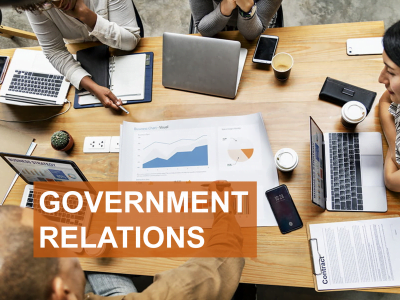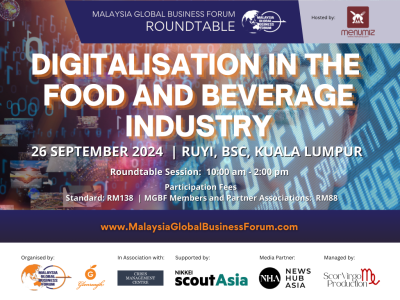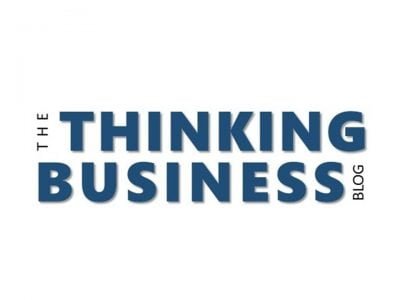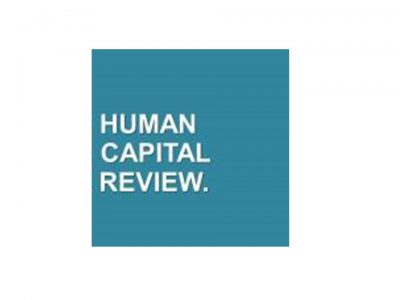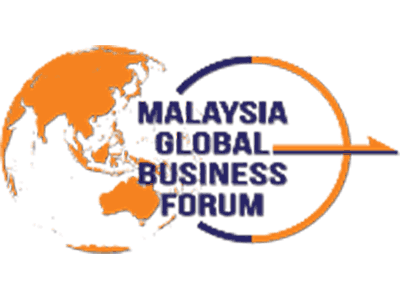
KUALA LUMPUR, 14 January 2020 – As the industry evolves and we envision the next decade, the most successful commercial real estate companies should follow the mantra: location, experience, and analytics. In the current artificial intelligence (AI)/ internet of things (IoT) era, the Commercial Real Estate (CRE) industry is having an unprecedented digital technology change, where geography is no longer the only factor driving the commercial real estate economic life and value. CRE companies are urged to prioritise tenants’ and end users’ needs, given the increasing influence of technology and changing customer preferences.
According to Deloitte’s 2020 Commercial Real Estate Outlook, tenant preferences are changing, with experience being the top priority, and that IoT and AI technologies can raise operational efficiency and lower costs.
Technology and data are the next frontier. Technology is reshaping tenant and end-user experience, with IoT and mobile apps changing the front-end experience. Known as “proptech”, Malaysia is looking to harness and incorporate technology into the property sector.
Deloitte’s economists raise concerns about the growing volatility of the global economy. Globally, politics are expected to weigh heavily on trade, investments, and equity markets. Despite these macroeconomic concerns, the CRE industry seems on solid footing to attract capital. If there is a downturn, the short- to medium-term challenge is expected to be budgetary pressures weighing against the requirement to make technology investments. The most-needed investments would emphasise digitising the tenant experience, together with back-end operations enhancements to enable bottom-line efficiencies, and top-line growth in the longer term.
Digitisation: The door to personalising tenant experience
Tenant experience is a top priority for most CRE leaders. The on-demand economy is reshaping tenant expectations about how real estate is consumed, and technology-enabled facilities and personalised experiences are already transforming the CRE industry.
Today, creating superior experiences is not just about engaging the tenant. It is also about extending services to the CRE “end user”, or the day-to-day consumer of that space: a retail shopper; a resident living in a multifamily property; an employee working in an office space; or a manufacturer using a warehouse. By increasing their investment in tenant experience-related technology, CRE organisations are responding to the growing demand for digital experiences. Many consumer-facing industries are using the IoT technology and mobile apps in different ways to enhance experience. IoT-enabled buildings and mobile apps can be game changers for CRE organisations, by digitising and personalising tenant experience.
“With the advancement of mobility technology, one does not need a fixed workstation to connect with co-workers. Given the increasing number of people working from home or satellite office, we expect the demand for smaller/ flexible and IoT enabled offices in Malaysia to increase significantly over the next 3 to 5 years”, shared Chia Swee How, Real Estate Tax Leader of Deloitte Malaysia.
What should CRE organisations do in 2020?
- Accelerate smart building proliferation. In Asia Pacific, CRE executives are aiming to increase their smart building portfolios, largely due to rising urbanisation and large-scale investments in new technologies and greenfield developments. “Based on the recent Deloitte 2020 CRE outlook survey, tenants are willing to pay a rental premium to be housed in smart buildings”, said Jimmy Lai, Real Estate Leader of Deloitte Malaysia. In the current quiet retail and office space market in Malaysia, it has become urgent for CRE companies to reinvent their buildings with digital tenant experience to stay vital, he added.
- Activate mobile experience. As the global mobile app market continues to grow, how can CRE companies differentiate themselves in this crowded space? They could offer a simple, intuitive, and interactive app based on a deep understanding of tenant needs and behaviours. CRE owners and operators can use data analytics to assess tenant/end-user preferences, improve predictive capabilities, and offer unique experiences to every user.
Unlock the value of data: capture, manage, and utilise
Most CRE companies have not completely explored how to capture and use information to enhance decision-making, improve operating performance, and create a differentiated tenant experience. Another reason for limited data utilisation is the evolving regulatory landscape, which may restrict a CRE organisation’s ability to create unique experiences for each tenant/end user.
As data generation and usage rises in the future, data control and access will become more complex, which means that data governance is a growing area of importance for CRE leaders. To maximise the value of the existing data, CRE companies would have to develop platforms, processes, and a governance structure that enable data discovery, availability, management, and usability. With the understanding of the significance of data governance, CRE organisations are implementing efforts to use analytics to help improve business decision-making – rent, pricing, tenant preferences, and operational effectiveness.
Artificial intelligence: The analytics backbone
AI technologies are evolving fast and redefining the way humans and machines interact. Although its benefits cut across various business processes, CRE organisations have yet to develop a deeper comprehension of how to use these technologies to their full advantage.
AI can reshape tenant experience by increasing the ease and frequency of interactions with both tenants and end users, add more agility in core business processes, and drive operational efficiency. The technology’s predictive capabilities for any business decision can have a strong influence on profitability and returns.
CRE organisations should leverage AI technologies to analyse new and complicated forms of data and automate redundant tasks. Advanced AI users can even uncover the technology’s potential to create new revenue sources.
Services
Stakeholder mapping, analysis, engagement and communication needs to be detailed to avoid business losses or even worse, a crisis. How can you do this effectively to prevent failure? ...
Data-driven business decisions have never been as crucial, especially in this era. MGBF leverages off, technology, experience and market presence to aid businesses in making accurate decisions. ...
MGBF provides comprehensive strategic advice and results-focused solutions to solve clients' problems in business-government relations so they can focus on their core business. ...
A critical business challenge is meeting the right decision-makers and potential buyers through the best channel and platform. How will you improve your business competency? ...
Upcoming Events
MGBF founding chairman Nordin Abdullah and UMW Toyota president Datuk Ravindran K. will delve into the convergence of automotive innovation and environmental sustainability in Penang, Sarawak, Johor and Pahang.
Hosted by menumiz™ – an end-to-end restaurant management system – this roundtable will feature a case study presentation and a panel session to discuss the latest digital trends, challenges, and opportunities within the food and beverage sector.
In this episode of 'A Working Lunch with Nordin', MGBF's founding chairman, Nordin Abdullah, will host this discussion focusing on the biggest threats and opportunities for businesses as we look to manage change in the South China Sea.
This MGBF Roundtable will focus on regional food security issues and trends in the regional supply chain, and trade regulations and policies, including a new geopolitical tool i.e., weaponisation of supply chains.
MGBF In The News
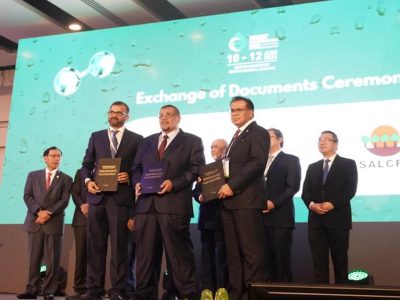
Planet QEOS, KIS BlOCNG San Bhd, and the Sarawak Land Consolidation and Rehabilitation Authority (SALCRA) have officially signed a tripartite memorandum of understanding (MoU) to establish a collaborative framework aimed at producing bio-hydrogen via the Steam Biomethane Reforming (SBMR) Process. The MoU was signed by Planet QEOS executive chairman Dino […]
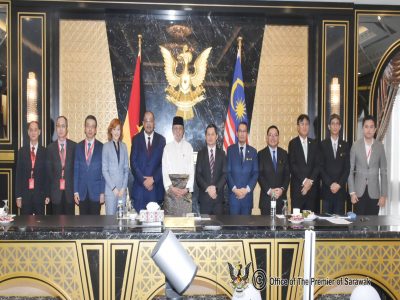
Planet QEOS and China Machinery Engineering Corporation (CMEC) are interested in investing RM10 billion to co-develop advanced Megawatt peak (MWp) agrovoltaic in Baram, to further boost Sarawak’s green energy initiative and food security. Sarawak Premier Datuk Patinggi Tan Sri Abang Johari Tun Openg was briefed on Friday by both the […]

Last week SPM results came out, 373,974 aspirants who have been waiting patiently over the last few months would now know their fate. Some 10,109 have received all A’s, the golden standard of academic success and the ticket to those looking to study the “more advanced” subjects in university. Proudly, […]
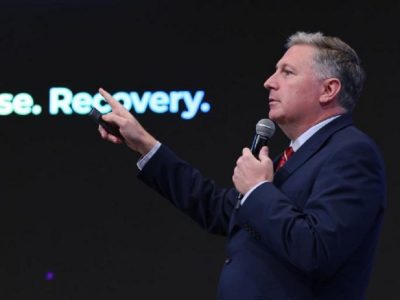
The classic knee-jerk reaction is to say, fire the coach, change the leadership of associations, and reduce the funding till they start performing better. This kind of negative reinforcement may work for kindergarten children, but we are dealing with high-performance adults – individuals much further along in their psychological and […]
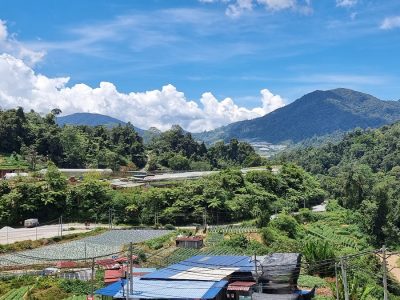
Since its earliest tea plantations in 1929, Cameron Highlands has grown to become a key player in the agricultural landscape of Malaysia, producing 40 per cent of all vegetables grown. Despite Malaysia shifting its economic focus away from agriculture, the industry remains imperative for food security and the livelihoods of […]
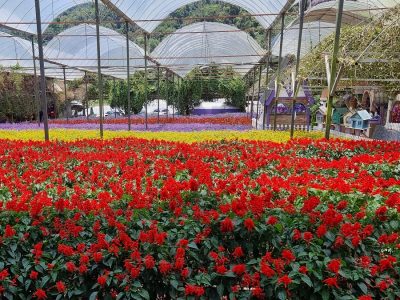
Although at first glance the travel industry and the agricultural sector appear to have nothing in common, they actually share more than meets the eye. The economic benefits of tourism to the agricultural sector can be multiplied several times over. “Tourism brings the end consumers closer to the source, which […]
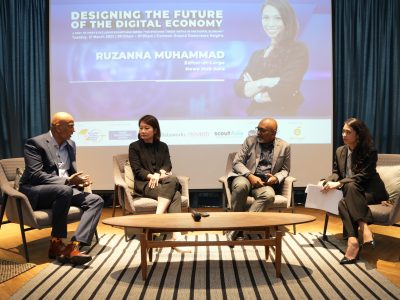
The Malaysia Global Business Forum (MGBF) recently held a high-level roundtable themed ‘Designing the Future of the Digital Economy’, attended by industry leaders and business associations. The guest of honour was Yang Berhormat Syerleena Abdul Rashid, the Member of Parliament (MP) for Bukit Bendera in Penang. The MP’s Special Session […]

The Malaysia Global Business Forum (MGBF) will be hosting a roundtable on ‘Designing the Future of the Digital Economy’ on 23 February 2023. It is the culmination of the first three MGBF Exclusive Roundtable Series titled ‘The Evolving Threat Matrix in the Digital Economy’ held throughout 2022. According to the […]

The Founding Chairman of the Malaysia Global Business Forum (MGBF), Nordin Abdullah, today spoke on Bernama TV’s leading English talk show, The Brief, hosted by Jessy Chahal, on the topic of a stable political reality and what that means for the Malaysian economy. Nordin said, “The first thing that it […]

More than 1,100 years ago, Muhammad ibn Musa al-Khwarizmi was developing the mathematical formulas that we know today as algorithms which now have become so intertwined with the business fortunes of global media giants and the very fabric of geopolitics. A series of recent high level international reports have revealed […]
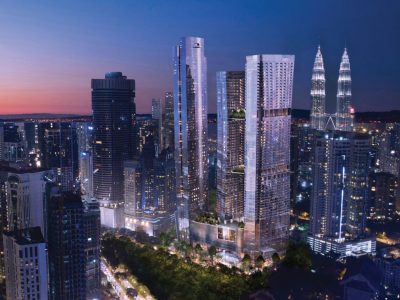
KSK Land has been recognised by the Malaysia Global Business Forum (MGBF) for its role in attracting high net-worth individuals to Malaysia post-pandemic. The first challenge in investor attraction is “selling” the country. In the context of Asia, Malaysia is competing with some very established investment destinations. The second […]
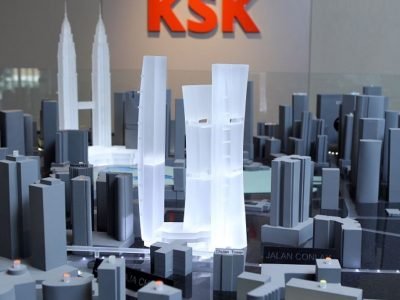
Malaysia, in particular Kuala Lumpur, continues to position itself as a regional centre to do business, educate a family and enjoy a global lifestyle. One company, KSK Land, has taken the lead in positioning itself and the city of Kuala Lumpur as a property investment destination for the global citizen […]
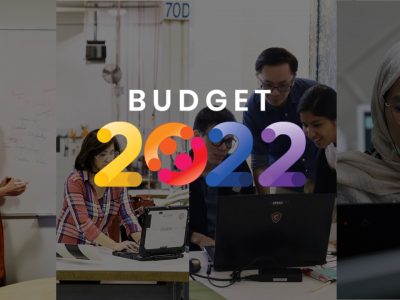
The upcoming budget represents an opportunity to build resilience in the critical sectors that will form the backbone of the country’s future-facing economic ambitions. This however needs to be achieved in the context of managing the community sectors most impacted by COVID-19 over the past two years. The Keluarga Malaysia (Malaysian Family) […]

Malaysia Global Business Forum (MGBF) has moved to support the creative economy as the overall economy moves into a recovery phase following the COVID19 pandemic. As a step in the direction of normalcy, the MGBF has agreed to host the art exhibition “I Know You’re Somewhere So Far” by one […]
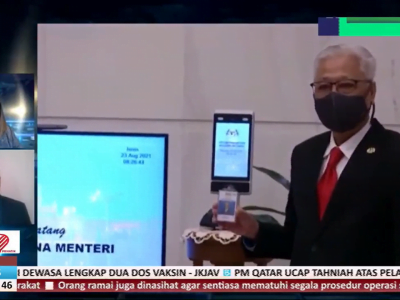
Congratulations to Datuk Seri Ismail Sabri Yaakob for taking up the mantle of the ninth prime minister of Malaysia. There is nothing normal about the situation; it could not have been scripted but it has kept the spectrum of media, mainstream and social, gripped. The first order of business for […]

In a stirring speech to the nation, President Joseph R. Biden, Jr. stamped his brand of leadership on the presidency, in his first act as the 46th president of the United State of America, it signaled several shifts. Perhaps the weather was foreboding with snow falling before the ceremony that […]

KUALA LUMPUR, 6 July 2022 – As the global economy continues to deal with unprecedented levels of disruption caused by the pandemic and the conflict between Russia and Ukraine, the convergence of energy security and food security issues has become a front-of-mind issue faced by policy makers and consumers alike. […]

KUALA LUMPUR, 23 June 2022 — Malaysia Global Business Forum (MGBF) ties up with scoutAsia to ensure that businesses are equipped with deeper regional insights. The past two years has seen a massive shift in the way businesses are conducted with digitisation, digitalisation and automation continuously being adopted to improve […]
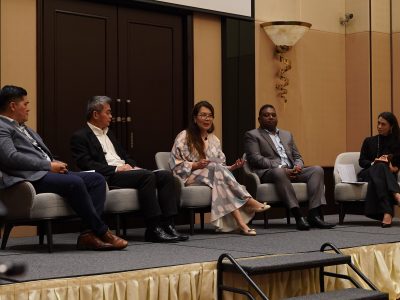
KUALA LUMPUR, 25 May 2022 – The Malaysia Global Business Forum (MGBF)’s exclusive roundtable on ‘Security Concerns in Critical Value Chains’ was held in a hybrid setting yesterday at the Eastin Hotel Kuala Lumpur. The guest of honour was Yang Berbahagia Tan Sri Dato’ Seri Rafidah Aziz, former minister of […]





